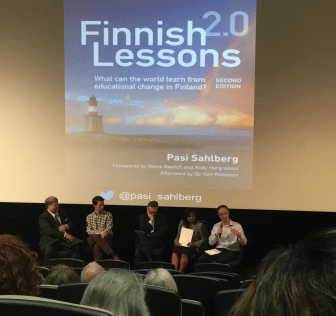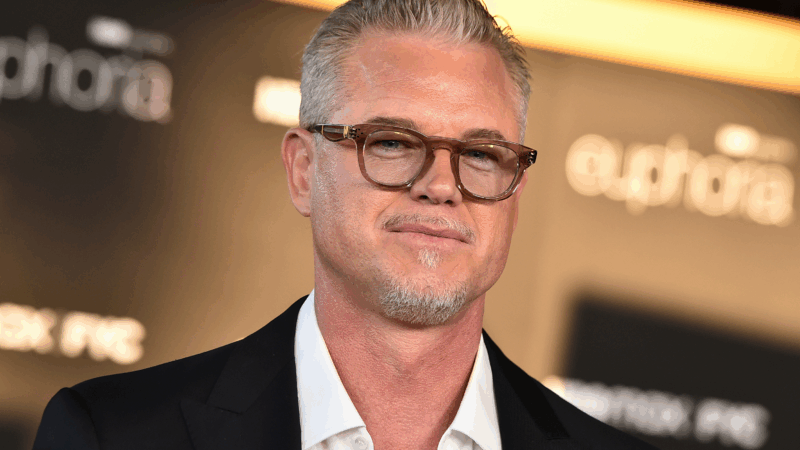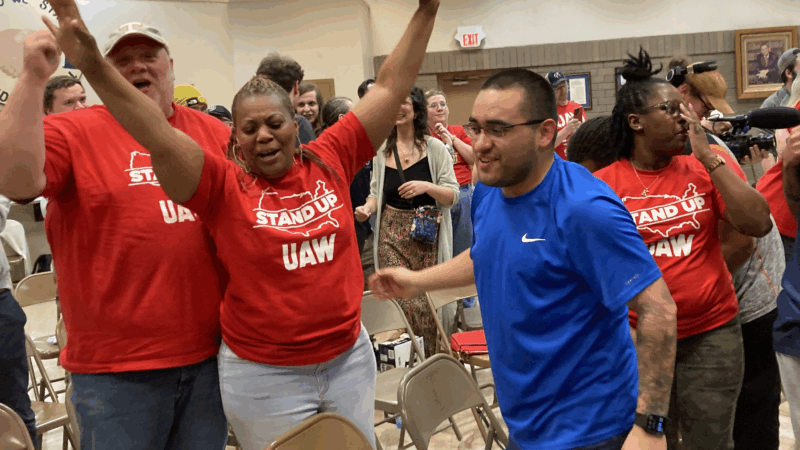What Can Finland Teach Alabama About Education?
Several decades ago, Finland’s education system was considered mediocre. But starting around 2001, it came to be regarded as a powerhouse, usually at or near the top of the world’s nations on internationally normed tests.
How? And can those strategies work in Alabama?
Renowned Finnish writer, scholar, and educator Pasi Sahlberg thinks they can. He was the keynote speaker at the Alabama-Finland Education Summit held today at the University of Alabama at Birmingham and sponsored by the Mike & Gillian Goodrich Foundation. The goal was to share best practices and an outside expert’s view of what the U.S. and Alabama do well and don’t do well, and how the situation can be improved. About 200 educators, policy experts, business leaders, and other stakeholders attended the program, where Sahlberg described Finland’s long-term effort “to have a great school in every village” as similar in scope to John F. Kennedy’s plan to get to the moon.
Funny Thing Is, They’re American Ideas
Goodrich Foundation Education Director and former Alabama superintendent Tommy Bice introduced Sahlberg and touched on what would be a main theme of the event. “We’re the only country not following our own research,” said Bice.
Sahlberg continued, “we know so much about what works,” thanks in part to research done in the U.S. “It seems other nations are better at implementing American ideas than America is.”
Those Ideas
Sahlberg first explained several approaches that he says, according to research, do not improve schools. One was education designed around the concept of competition, as if education were a business. He attributed this organizing principle — particularly in the U.S. — to “a corporate mindset that began taking over in the 1980s and 1990s.” He includes Alabama’s “aggressive charter school movement” in that trend.
Sahlberg also said that higher standards like Common Core or test-based accountability “have never worked” as a driver of school improvement. Drawing cheers from educators in the audience, he added, “I don’t even use that word … ‘accountability’ is what’s left when you subtract responsibility.”
He critiqued the “anyone who’s got passion can teach,” “fast-track” approach to school staffing in general, and Teach For America “with its five-week training program” in particular. He’s worried about “the de-professionalization of teaching” in America, which he thinks is both cause and symptom of U.S. teachers’ lack of prestige. Finally, he said privatization of schools or school systems simply does not improve student learning.
On the other hand, what long-term research does show to work, he says, is cooperation, trust, and creative freedom among teachers – the opposite of what’s fostered when merit pay is based on student test scores. Sahlberg favors a Finnish-style system where principals “have a little pocket money” and discretion to reward teachers for their overall work with students.
“Positive Discrimination” Funding in the World’s Wealthiest Country
After recognizing that correlation is not causation, Sahlberg pointed out that nations whose schools have a high degree of equity in funding, resources, and outcomes tend to have a high degree of quality, too.
The United States’ 50 separate school-funding regimes – Alabama’s in particular – took criticism from Sahlberg, Bice, and educators in the audience and on a post-speech panel. Alabama’s funding formula is based on simple enrollment: it does not take into account need, meaning relatively expensive challenges like higher student poverty rates or percentages of special-needs students. Local tax revenue differs wildly district to district, and the result is inequitable school funding, usually with poorer districts spending less money on each student than richer districts do.
“In Mountain Brook, people pay 52 mils property tax. In Coosa County, it’s 10 mils,” pointed out Bice.
Federal money helps offset some of those differences, but often not to the point where funding is equitable, let alone commensurate to need.
“I think you should spend more on education,” said Sahlberg. “America is the wealthiest country in the world. You can afford it.”
But the U.S. Is Not “Broken”
Despite a video Sahlberg played in which Donald Trump said America spends more on education than anyone else but gets poor results for it, the U.S. is actually about average among wealthy nations in terms of international test scores.
Sahlberg put it like this: “You’re not great, but you’re not bad either. You’re spending less money, but you’re still average despite high degrees of division and inequity.”
Lessons One through Four
However, “schools must be funded fairly,” said Sahlberg, starting on a list of four main recommendations. “Alabama needs fairer funding. You need ‘positive discrimination’ – more resources to schools with more difficult circumstances.”
The second: “Teachers must work together” and have real control over their days. Lesson Three gleaned from decades of international research: “Children must play. It breaks my heart that so many kids today in America have no recess during the school day.” Fourthly and finally, “Healthy students make better learners. We need to think of the health and happiness of the child as part of education policy. We need to teach healthy living as a skill. And not just in one middle-school class.”
He pointed out that large numbers of U.S. students miss school because of toothaches. In Finland, he says, that’s unheard of because dental care is part of school. “If you don’t have [health care] in schools,” he says, “I don’t see how America can be great.”
An Alien
Sahlberg admitted that the U.S. is much more diverse and divided than Finland, but when a questioner pointed out that student poverty rates in the U.S are much higher than in Finland, he responded, “I don’t buy the poverty excuse for a minute.” He also reminded the audience that an outsider often has a more objective view of things. “As an alien who loves America, I can step out and look in,” he said, adding that Finland has taken “a remarkable journey” focused on achieving equity, which could benefit other nations … and states.
Trump says he doesn’t know if aliens are real but directs government to release files on UFOs
President Donald Trump said Thursday that he's directing the Pentagon and other government agencies to release files related to extraterrestrials and UFOs because of "tremendous interest."
Trump warns of ‘bad things’ if Iran doesn’t make a deal, as second U.S. carrier nears Mideast
Iran held annual military drills with Russia on Thursday as a second American aircraft carrier drew closer to the Middle East.
Eric Dane, ‘Grey’s Anatomy’ star and ALS awareness advocate, dies at 53
Eric Dane, the celebrated actor best known for his roles on "Grey's Anatomy" and "Euphoria" and who later in life became an advocate for ALS awareness, died Thursday. He was 53.
Venezuela approves amnesty that may release of hundreds detained for political reasons
Venezuela's acting president has signed into law an amnesty bill that could lead to the release of politicians, activists, lawyers and many others. The approval marks a stark turn for the nation.
In a historic vote, Tennessee Volkswagen workers get their first union contract
Two years ago, the successful union drive at this plant was expected to spark victories throughout the South. But now, as members vote to make their contract official, momentum has fizzled.
NASA chief blasts Boeing, space agency for failed Starliner astronaut mission
NASA's Jared Isaacman slammed Boeing for failures with its Starliner spacecraft, which was deemed unsafe to return its crew of two astronauts from the International Space Station







